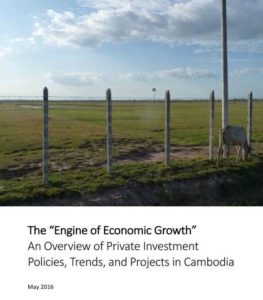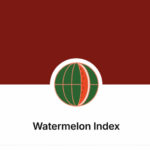
Since the early 1990s, Cambodia has been heavily reliant on foreign aid. The Cambodian Government is seeking to reduce donor-dependence and increase self-reliance, aiming to lift the country to the status of higher middle-income country by 2030. This goal depends heavily on increasing private investment, and the Government has described the private sector as the “engine of economic growth” for Cambodia. It is therefore seeking to encourage both foreign and domestic investment in order to maintain current growth rates and facilitate continued development of the country.
Beginning in the early 1990s, Cambodia took steps to liberalize the environment for private sector investment. This included reducing restrictions on foreign companies and passing measures to make it easier for companies to register and receive necessary licenses, permits and approvals. Since Cambodia moved away from a centrally-planned economy towards the market economy, all sectors of the economy have been opened for private investment – both from inside and outside the country. This includes investments in agriculture, real estate, energy, transport, communication, manufacturing and extractive industries. Public services have also been opened to private investment, including utilities and healthcare.
Private investment plays an important role in the Cambodian economy and has generated employment, raised revenues, and contributed to Cambodia maintaining its impressive figures for economic growth. However, many investment projects have also been associated with serious problems in their implementation. Private investment in agriculture has been implicated in land conflicts and violations of the rights of farmers and indigenous people. Infrastructure development has caused environmental damage that has not always been adequately mitigated. Mining operations have poisoned ground water, and manufacturers have become involved in disputes with their workers over pay and working conditions. While investment is important for the continued development of Cambodia, irresponsible investment has been connected to serious human rights abuses and impoverishment of Cambodian communities that have lost access to land and resources.
Acknowledging the importance of private investment as well as the challenges that have so far emerged in its implementation, this paper aims to present an overview and analysis of the current investment landscape in Cambodia, as well as its impacts on people and the environment. It is hoped that the information contained here will both raise awareness about current investment trends and promote discussion among the various stakeholders interested in the current trajectory of Cambodia’s development. The paper begins with an overview of Cambodia’s policies on investment, followed by a summary of key elements of the regulatory framework. It then looks at nationwide investment trends and focuses on several key sectors, before going on to discuss how regional and international actors and agreements are shaping Cambodia’s investment climate. The final section reflects on the impacts of private investment in Cambodia.





